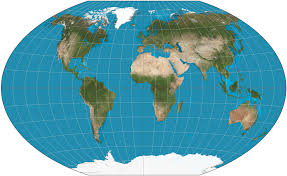 Some 36% of countries have had female heads of state or heads of government. Significant ones that come to mind are Margaret Thatcher, prime minister of the United Kingdom for 11 years; Angela Merkel, chancellor of Germany for 16 years; Golda Meir, prime minister of Israel for five years; Indira Ghandi, India, 15 years; Benazir Bhutto, Pakistan, five years; Corazon Aquino, Philippines, six years; Mary Robinson, president of Ireland, seven years; Julia Gillard, Australia, three years; and Cristina Fernandez de Kirchner, Argentina, 12 years.
Some 36% of countries have had female heads of state or heads of government. Significant ones that come to mind are Margaret Thatcher, prime minister of the United Kingdom for 11 years; Angela Merkel, chancellor of Germany for 16 years; Golda Meir, prime minister of Israel for five years; Indira Ghandi, India, 15 years; Benazir Bhutto, Pakistan, five years; Corazon Aquino, Philippines, six years; Mary Robinson, president of Ireland, seven years; Julia Gillard, Australia, three years; and Cristina Fernandez de Kirchner, Argentina, 12 years.
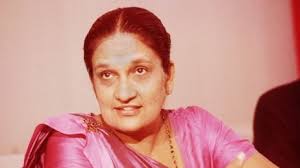 But none of these was the first. That honour goes to Sirimavo Bandaranaike who became prime minister of Ceylon, later Sri Lanka, in 1960. She took over from her husband who was assassinated. She served four terms, totalling 18 years.
But none of these was the first. That honour goes to Sirimavo Bandaranaike who became prime minister of Ceylon, later Sri Lanka, in 1960. She took over from her husband who was assassinated. She served four terms, totalling 18 years.
Facts
36% of the world’s 195 nations, ie only about 70, have had a female head of government or head of state.
The first was Sirimavo Bandaranaike who was elected prime minister of Ceylon, later Sri Lanka, in 1960.
In 1980 Vigdís Finnbogadóttir of Iceland became the first woman in the world to be elected head of state in a national election.
Of the 10 most populous countries, the United States, Russia, China, Mexico, and Nigeria had never elected a woman leader, although Claudia Sheinbaum was recently elected president of Mexico, and Kamala Harris is surely poised to be elected the first female president of the United States in November 2024.
Significant women leaders in Europe
The Iron Lady - Margaret Thatcher
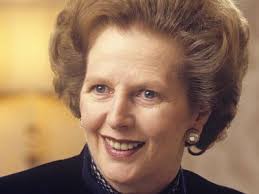 Margaret “Mrs” Thatcher, daughter of a grocer, became leader of the Conservative and Unionist Party in 1975 and in 1979 she became the first ever woman prime minister of the United Kingdom.
Margaret “Mrs” Thatcher, daughter of a grocer, became leader of the Conservative and Unionist Party in 1975 and in 1979 she became the first ever woman prime minister of the United Kingdom.
She survived her potential demise after one term by declaring war on Argentina when that country invaded the disputed Falkland Islands (Las Malvinas), which the South American republic claimed was theirs, and still does, despite the archipelago being British since 1833.
Thatcher dismantled the welfare state; privatised rail and bus companies, and energy providers, ie electricity, gas and water; and was anti-Europe, although the UK remained a member of the Common Market, the European Union’s name at that time.
Mrs Thatcher, the Iron Lady, was ousted by her own party in 1990, to be replaced as PM by John Major.
“Mutti” – Angela Merkel
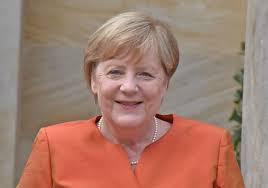 Angela Merkel grew up in the German Democratic Republic (East Germany). She was effectively an “Ossie”, yet she became the dominant politician in the re-united Germany, ruling as chancellor for 16 years, from 2005 to 2021.
Angela Merkel grew up in the German Democratic Republic (East Germany). She was effectively an “Ossie”, yet she became the dominant politician in the re-united Germany, ruling as chancellor for 16 years, from 2005 to 2021.
"Mutti" Merkel presided over a strong economy, the Deutsche Wirtschaftswunder (German Economic Miracle), although in her later years, her policy of opening Germany’s borders to refugees fleeing from Africa and Eastern Europe has tarnished her legacy.
Both these women leaders were admired around the world, less so within their own countries.
The future
Who will be the next woman to have a major impact in Europe?
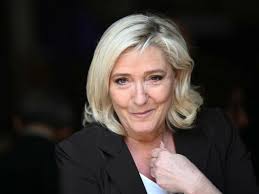 Marine Le Pen, leader of the right-wing party National Rally (Rallye Nationale) in France appears to be a “busted flush”, after this summer’s general election, when in the second round of voting, the left and centre-left parties “ganged up on her”.
Marine Le Pen, leader of the right-wing party National Rally (Rallye Nationale) in France appears to be a “busted flush”, after this summer’s general election, when in the second round of voting, the left and centre-left parties “ganged up on her”.
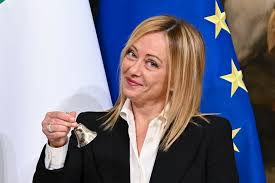 Giorgia Meloni is an Italian politician who has been prime minister of Italy since October 2022, the first woman to hold this position. She has led the right-wing populist Brothers of Italy (Fratelli d'Italia - FdI) political party since 2014. Forbes magazine ranked Meloni as the fourth most powerful woman in the world in 2023. In 2024 she was listed among the most influential people in the world by Time magazine.
Giorgia Meloni is an Italian politician who has been prime minister of Italy since October 2022, the first woman to hold this position. She has led the right-wing populist Brothers of Italy (Fratelli d'Italia - FdI) political party since 2014. Forbes magazine ranked Meloni as the fourth most powerful woman in the world in 2023. In 2024 she was listed among the most influential people in the world by Time magazine.
Gerardo Elorriaga, writing for Diario Sur on 28 July 2024, considered the above two women to be significant. Others he dismissed as largely irrelevant in terms of their likely impact on world politics.
He considered Thatcher and Merkel to have been massively important figures in European politics, and Indira Gandhi, Benazir Bhutto and Sheikh Hasina Wajed, in India, Pakistan and Bangladesh respectively.
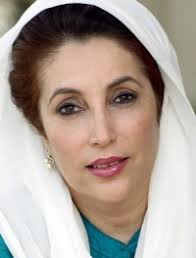
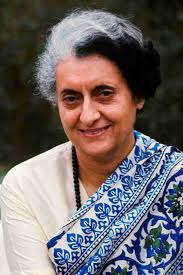
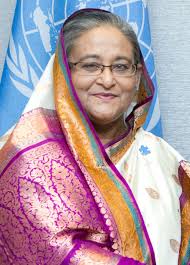
Benazzir Bhutto Indira Gandhi Sheikh Hasina Wajed
Stop Press: In the wake of the current civil unrest in Bangladesh Sheikh Hasina Wajed has been forced to resign. Her place has been taken by Nobel Peace Prize laureate Muhammad Yunus, who heads an interim government.
Sources:
Diario Sur
Encyclopedia.com
New York Times
Wikipedia
Photographs:
Britannica
El Mundo
France24
Heroinas
Wikimujeres
Wikipedia
www.deutschland.de
Tags:
Angela Merkel, Benazir Bhutto, Britannica, Claudia Sheinbaum, Corazon Aquino, Cristina Fernández de Kirchner, Diario Sur, El Mundo, Encyclopedia, France24, Giorgia Meloni, Golda Meir, Heroinas, Indira Gandhi, Julia Gillard, Kamala Harris, Margaret Thatcher, Marine Le Pen, Mary Robinson, New York Times, Sheikh Hasina Wajed, Sirimavo Bandaranaike, Vigdís Finnbogadóttir, Wikimujeres, Wikipedia, www.deutschland.de